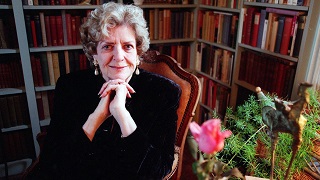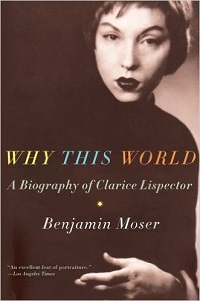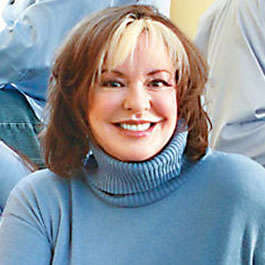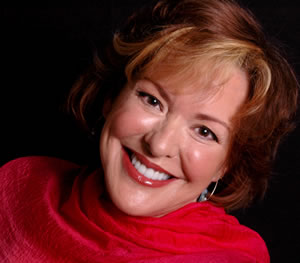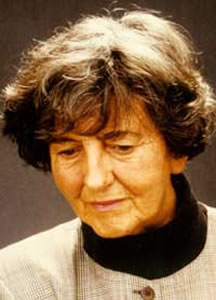De 10e december is een zeer vruchtbare geboortedag gebleken voor schrijvers. Vandaar dat er na deze posting nog een tweede volgt. Kom gerust nog eens kijken later vandaag
De Franse dichter en schrijver Pierre Louÿs werd geboren op 10 december 1870 in Gent als zoon van de Franse advocaat Pierre-Felix Louis. Vrijwel onmiddellijk na zijn geboorte vertrok zijn moeder met hem naar Frankrijk. Hij bracht zijn jeugd door tussen Parijs en Dizzy (Epernay). Bij de dood van zijn moeder (1879) werd hij door zijn vader aan zijn in Parijs wonende oom Georges, man van cultuur en diplomaat, toevertrouwd die voor zijn verdere opvoeding zou zorgen. Hij had ook nog twee oudere broers en met zijn oudste broer Georges had hij tot het einde van zijn leven een heel intens contact.
Op het lyceum Janson-de-Sailly raakt hij bevriend met die andere eenzaat en door literatuur bezetene, André Gide. Tijdens zijn studietijd aan de Sorbonne, periode dat hij intens las en schreef, maakte hij kennis met Régnier, Heredia, Leconte de Lisle, Mallarmé en Paul Valéry. Heel zijn oeuvre steunde op de dubbele tegenstelling: droom-werkelijkheid, vorm-idee. In 1892 verscheen zijn eerste gedichtenbundel Astrarté, in 1894 gevolgd door zijn heel beroemd geworden Chansons de Bilitis. In 1896 werd zijn roman Aphrodite gepubliceerd
Les Nymphes
Oui, des lèvres aussi, des lèvres savoureuses
Mais d’une chair plus tendre et plus fragile encor
Des rêves de chair rose à l’ombre des poils d’or
Qui palpitent légers sous les mains amoureuses.
Des fleurs aussi, des fleurs molles, des fleurs de nuit,
Pétales délicats alourdis de rosée
Qui fléchissent pliés sous la fleur épuisée
Et pleurent le désir, goutte à goutte, sans bruit.
Ô lèvres, versez-moi les divines salives
La volupté du sang, la vapeur des gencives
Et les frémissements enflammés du baiser.
Ô fleurs troublantes, fleurs mystiques, fleurs divines
Balancez vers mon coeur sans jamais l’apaiser
L’encens mystérieux des senteurs féminines.
Aphrodite
Ô Déesse en nos bras si tendre et si petite,
Déesse au coeur de chair, plus faible encor que nous,
Aphrodite par qui toute Ève est Aphrodite
Et se fait adorer d’un homme à ses genoux,
Toi seule tu survis après le crépuscule
Des grands Olympiens submergés par la nuit.
Tout un monde a croulé sur le tombeau d’Hercule,
Ô Beauté! tu reviens du passé qui s’enfuit.
Telle que tu naquis dans la lumière hellène
Tu soulèves la mer,tu rougis l’églantier,
L’univers tournoyant s’enivre à ton haleine
Et le sein d’une enfant te recueille en entier.
Telle que tu naquis des sens de Praxitèle
Toute amante est divine, et je doute,à ses yeux,
Si le Ciel te fait femme ou la fait immortelle,
Si tu descends vers l’homme ou renais pour les Dieux.
Pierre Louÿs (10 december 1870 – 6 juni 1925)
De Braziliaanse schrijfster Clarice Lispector werd geboren op 10 december 1925 in Podolia (Oekraïne) Zij was van Oekraïens-Joodse afkomst, maar verhuisde naar Brazilië toen ze enkele maanden oud was. Het Portugees werd haar moedertaal. Ze wordt als de belangrijkste Braziliaanse schrijfster van haar tijd beschouwd en tegenwoordig ook gezien als een toonaangevende feministe die vooral over de noden en belangen van de vrouw schreef, en daarbij de menselijke relaties en de (sociale) positie van de vrouw ter discussie stelde.
Uit: Family Ties
„When the man reached the highest hill, the bells were ringing in the city below. The uneven rooftops of the houses could barely be seen. Near him was the only tree on the plain. The man was standing with a heavy sack in his hand.
His near-sighted eyes looked down below. Catholics, crawling and minute, were going into church, and he tried to hear the scattered voices of the children playing in the square. But despite the clearness of the morning hardly a sound reached the plateau. He also saw the river which seen from above seemed motionless, and he thought: it is Sunday. In the distance he saw the highest mountain with its dry slopes. It was not cold but he pulled his overcoat tighter for greater protection. Finally he placed the sack carefully on the ground. He took off his spectacles, perhaps in order to breathe more easily, because he found that clutching his spectacles in his hand he could breathe more deeply. The light beat on the lenses, which sent out sharp signals. Without his spectacles, his eyes blinked brightly, appearing almost youthful and unfamiliar. He replaced his spectacles and became once more a middle-aged man and grabbed hold of the sack again: it was as heavy as if it were made of stone, he thought. He strained his sight in order to see the current of the river, and tilted his head trying to hear some sound: the river seemed motionless and only the harshest sound of a voice momentarily reached that height—yes, he felt fine up here. The cool air was inhospitable for one who had lived in a warm city. The only tree on the plain swayed its branches. He watched it. He was gaining time. Until he felt that there was no need to wait any longer.
And meantime he kept watch. His spectacles certainly bothered him because he removed them again, sighed deeply, and put them in his pocket.“
Clarice Lispector (10 december 1925 – 9 december 1977)
De Armeense schrijver Ara Baliozian werd geboren op 10 december 1936 in Athene. Zie ook mijn blog van 10 december 2006.
Uit: Pages From My Diary, 1986-1995
„How to explain the irrelevance of our contemporary literature? My guess is, some time in their formative years, our writers and versifiers were exposed to the philistine theory that says, the function of literature is to say profound things about noble subjects. Homer sang of gods and heroes, Shakespeare of kings and princes, Tolstoy and Dostoevsky of mighty passions…Since there is nothing noble, heroic, or mighty about our present condition, it follows that it must be avoided or ignored. One cannot produce great literature by writing about petty problems and pusillanimous characters.
This is the only way to explain why our writers continue to write about sunsets and our cultural organizations continue to sponsor seminars on Khorenatsi and Naregatsi… as the nation slides deeper into the quicksands of decline and degeneration.
Chinese saying: “If a man, sitting alone in his room, thinks the right thoughts, he will be heard thousands of miles away.”
(…)
I ask a friend from Yerevan: “Is any of the help from America reaching the people in Armenia?”
“Yes,” he replies, “and it’s making a select few very rich.”
“What are the chances of this select few being caught and hung?” I ask next.
“None while I am alive. After that, it’s hard to say.”
“Another friend who has just returned from a visit to Yerevan, tells me: “In seventy years the situation may become normal but not before.”
“That’s exactly what our crooks and profiteers are counting on too – seventy years of abundance.
People whose experience of poverty is based on hearsay, think of it as the total absence of all luxuries. But the absence of luxuries is the least offensive thing about poverty. Poverty, real poverty, means constant uncertainty and anxiety over the future, also fear, humiliation, degradation, despair…“
Ara Baliozian (Athene, 10 december 1936)
De Engelse schrijfster Margaret Rumer Godden werd geboren op 10 december 1907 in Eastbourne, East Sussex. Zij leefde echter de eerste veertig jaar van haar leven overwegend in India. In 1949 keerde zij terug naar het Verenigd Koninkrijk om zich aan het schrijven te wijden. Ze heeft meer dan zestig, deels zeer succesvolle, boeken op haar naam staan, waaronder The Black Narzissus. The River, The Doll’s House, An Episode of Sparrows, Greengage Summer en The Diddakoi. Verschillende van haar romans werden ook verfilmd.
Uit: Five for Sorrow, Ten for Joy
„The sound of the bell carried far over
the orchards and fields of the convent of Belle Source.
It was the first bell for Vespers, not a bell in a bell tower but a handbell, rung outside by the soeur réglementaire, the bell ringer, and, in ones and twos, the nuns came in, those from the farm and garden shedding their heavy boots and dark blue overalls, all taking off their aprons. Each sister washed her hands in the basin at the end of the corridor, straightened her veil or took off her blue work head-handkerchief and put on her veil, then went to her place in the line where all the community stood. This was the time when each told, before them all, of any fault she had made.
“What—every day?” asked Father Marc, the new aumônier. “That seems a little overscrupulous. What faults could they possibly have?”
“Only faults against charity and I’m sure not many.” The prioress smiled. “But at our Béthanies we need charity as perhaps nowhere else.”
“And, perhaps, as nowhere else,” Marc was to say when he knew them better, “these sisters understand the creeping power of sin, if you allow the least crack . . .”
“I lingered in the garden after recreation and so kept two of my sisters waiting.”
“I answered Soeur Marie Christine back and was rude.” Soeur Marie Christine made a swift movement of reconciliation.
“I spoke sharply . . .” They were those “least cracks”; but, like an echo from far far back, far from the steadfastness of Belle Source:
“She wouldn’t stop crying so I stuffed my handkerchief into her mouth, down and down until . . .”
Rumer Godden (10 december 1907 – 8 november 1998)
De Duitse schrijfster Christine Brückner werd geboren op 10 december 1921 in Schmillinghausen bij Bad Arolsen in Hessen. Daar bezocht zij ook het gymnasium. Na WO II werd zij bibliothecaresse in Stuttgart. Van 1946 tot 1950 was zij verbonden aan de universiteit van Marburg. Daarnaast studeerde zij kunstgeschiedenis, germanistiek en psychologie. In 1954 verscheen haar eerste roman “Ehe die Spuren verwehen”. Tot haar grootste successen behoort de romantrilogie “Jauche und Levkojen”, “Nirgendwo ist Poenichen” en “Die Quints”. Van de eerste twee werd in 1979 en 1980 een televisieserie gemaakt. Eveneens succesvol was het boek “Wenn Du geredet hättest, Desdemona. Ungehaltene Reden ungehaltener Frauen”.
Uit: Jauche und Levkojen
“Der junge Quindt kehrte nach viertägiger Hotel-Ehe zu seinem Regiment an die Westfront zurück, und die alten Quindts nahmen seine junge Frau mit nach Poenichen. Schnellzug Berlin-Stettin-Stargard, dann Lokalbahn und schließlich Riepe, der die drei mit dem geschlossenen Coupé – nach dem Innenpolster >Der Karierte< genannt – an der Bahnstation abholte. Die junge Frau führte nicht mehr als eine Reihe von Schließkörben und Reisetaschen mit sich. Fürs erste blieb ihre Aussteuer in Berlin, Möbel, Wäsche, Porzellan und Silber für die spätere Berliner Stadtwohnung. Sie würde fürs erste zwei der Gästezimmer im Herrenhaus bewohnen, die sogenannten >grünen Zimmer<. Fürs erste, das hieß: bis der junge Baron heimkehrte, bis der Krieg zu Ende war.
Als die Pferde in die kahle Lindenallee einbogen, dämmerte es bereits. Vera sagte, als sie das Herrenhaus am Ende der Allee auftauchen sah: »Das sieht ja direkt antik aus! War denn mal einer von euch Quindts in Griechenland?« Der alte Quindt bestätigte es. »Ja, aber nicht lange genug. Pommersche Antike. «
Wo dieses Poenichen liegt?
Wenn Sie sich die Mühe machen wollen, schlagen Sie im Atlas die Deutschlandkarte auf. Je nach Erscheinungsjahr finden Sie das Gebiet von. Hinterpommern rot oder schw
arz überdruckt mit >z. Z. poln. Besatzungsgebiet< oder >unter poln. Verwaltung<, die Ortsnamen ausschließlich in deutscher Sprache oder die polnischen Namen in Klammern unter den deutschen oder auch nur polnisch. Daraus sollten Sie kein Politikum machen; im Augenblick steht zwar schon fest, daß der Erste Weltkrieg im günstigsten Falle noch durch einen ehrenvollen Waffenstillstand beendet werden kann, aber: Noch ist Pommern nicht verloren!“

Christine Brückner (10 december 1921 – 21 december 1996)
De Franse schrijver Eugène Sue werd geboren op 10 december 1804 in Parijs. Zie ook mijn blog van 10 december 2006.
Uit: Les sept péchés capitaux
„Il marchait d’un air solennel, portant sur un plateau un petit réchaud d’argent de la grandeur d’une assiette, surmonté de sa cloche. A côté de ce plat, on voyait un petit flacon de cristal rempli d’une liqueur limpide et couleur de topaze brûlée.
– Paolo, demanda le chanoine, qu’est ce que cette argenterie ?
– Elle appartient à M. Appetit, seigneur ; sous cette cloche est une assiette à double fond, remplie d’eau bouillante car il faut surtout, dit ce grand homme, manger brûlant.
– Et ce flacon, Paolo ?
– Son emploi est indiqué sur ce billet, seigneur, qui vous annonce les mets que vous allez manger.
– Voyons ce billet, dit le chanoine.
Et il lut :
“Oeufs de pintades frits à la graisse de caille, relevés d’un coulis d’écrevisses. N.B. Manger brûlant, ne faire qu’une bouchée de chaque oeuf, après l’avoir bien humecté de coulis.“
“Mastiquer pianissimo.
“Boire, après chaque oeuf, deux doigts de ce vin de Madère de 1807, qui a fait cinq fois la traversée de Rio de Janeiro à Calcutta.“

Eugène Sue (10 december 1804 – 3 augustus 1859)
De Oostenrijkse schrijver Karl Heinrich Waggerl werd geboren op 10 december 1897 in Bad Gastein. Zie ook mijn blog van 10 december 2006.
Vom Ochsen und vom Esel
„Vom Ochsen und vom Esel hat die Schrift durchaus nichts zu melden. Aber meine Mutter hat mir erzählt, wie es war: Der Erzengel, während Joseph mit Maria nach Bethlehem wanderte, rief die Tiere in der Gegend zusammen, um eines oder das andere auszuwählen, das der Heiligen Familie im Stall mit Anstand aufwarten konnte.
Als erster meldete sich natürlich der Löwe. Nur jemand von königlichem Geblüt sei würdig, brüllte er, dem Herrn der Welt zu dienen. Er werde sich mit all seiner Stärke vor die Tür setzen und jeden zerreißen, der sich in die Nähe des Kindes wagte.
“Du bist mir zu grimmig”, sagte der Engel.
Darauf schlich der Fuchs heran und erwies in aller Unschuld eines Gaudiebes seine Reverenz mit der Rute. König hin oder her, meinte er, vor allem sei doch für die leibliche Notdurft zu sorgen. Deshalb mache er sich erbötig, süßesten Honig für das Gotteskind zu stehlen und jeden Morgen auch ein Huhn in den Topf für die Wöchnerin.
“Du bist mir zu liederlich” sagte der Engel.
Nun stelzte der Pfau in den Kreis. Das Sonnenlicht glänzte in seinem Gefieder, rauschend entfaltete er sein Rad. So wolle er es auch hinter der Krippe aufschlagen, erklärte er, und damit den armseligen Schafstall köstlicher schmücken als Salomon seinen Tempel.
“Du bist mir zu eitel” sagte der Engel.
Hinterher kamen noch viele der Reihe nach, Hund und Katze, die kluge Eule und die süß flötende Nachtigall, jedes pries seine Künste an, aber vergeblich. Zuletzt blickte der strenge Cherub noch einem um sich und sah Ochs und Esel draußen auf dem Felde stehen, beide im Geschirr, denn sie dienten einem Bauern und mußten Tag für Tag am Wassergöpel im Kreise laufen. Der Engel rief auch sie herbei. “Ihr beiden, was habt ihr anzubieten?”
“Nichts, Euer Gnaden” sagte der Esel und klappte traurig seine Ohren herunter. “Wir haben nichts gelernt, außer Demut und Geduld. Denn in unserem Leben hat uns alles andere immer nur noch mehr Prügel eingetragen.”
“Aber” warf der Ochse schüchtern ein, “aber vielleicht könnten wir dann und wann ein wenig mit den Schwänzen wedeln und die Fliegen verscheuchen!”
“Dann seid ihr die Rechten!” sagte der Engel.“
Karl Heinrich Waggerl (10 december 1897 – 4 november 1973)
